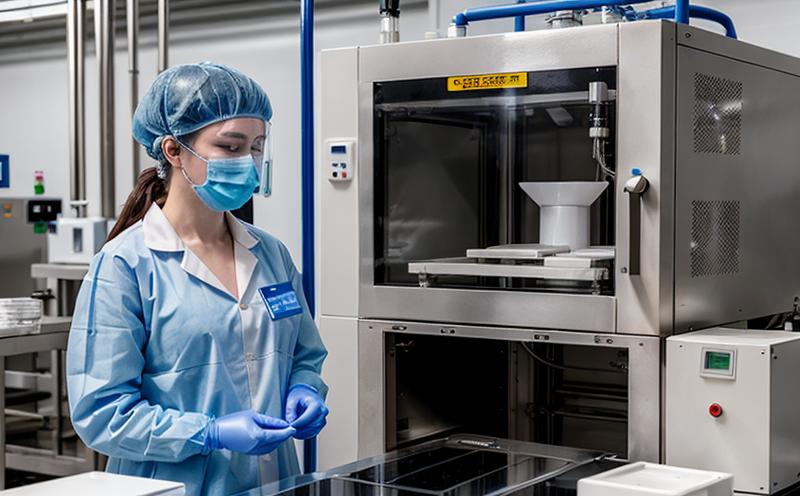GMP Raw Material Identity Verification Testing
In today’s pharmaceutical landscape, ensuring that raw materials meet stringent quality and regulatory standards is paramount. Good Manufacturing Practice (GMP) compliance testing plays a critical role in maintaining product integrity and patient safety. This service focuses on the rigorous verification of the identity of raw materials used in manufacturing processes to ensure they are what they claim to be.
The process begins with thorough specimen preparation, where samples are carefully selected, labeled, and analyzed under controlled conditions. The testing utilizes a variety of advanced techniques including chromatography, spectroscopy, and mass spectrometry to identify the chemical composition of raw materials. These methods allow for precise differentiation between similar substances, ensuring that the correct material is used in formulations.
Accurate identification is crucial as even minor discrepancies can lead to formulation issues or regulatory non-compliance. For instance, using a synthetic substitute instead of an intended natural extract could result in ineffective products or those with adverse side effects. Our testing ensures that no such errors occur by providing detailed and verifiable reports.
Customer impact is significant; compliance with GMP standards enhances brand reputation and consumer trust. This service not only guarantees product quality but also facilitates smoother regulatory processes, reducing the risk of recalls and ensuring continuous supply to meet market demands.
Applied Standards
| Standard | Description |
|---|---|
| ISO 17025 | Absorptive spectrophotometers, infrared spectrometers, and other analytical instruments used in this testing must comply with the ISO 17025 standard to ensure accurate and reproducible results. |
| ASTM E1346 | This standard specifies the performance criteria for near-infrared (NIR) spectroscopy used in identifying raw materials. |
| ISO 22716-1 | Testing of botanical ingredients and other natural products adheres to this standard for ensuring accurate identification through chromatographic methods. |
| ISO 17025 | The laboratory must meet the ISO 17025 standard to ensure that all testing processes are conducted in a manner that is consistent, reliable, and accurate. |
| ASTM E1346 | This standard ensures the performance criteria for near-infrared spectroscopy used in this testing are met. |
| ISO 22716-1 | Botanical and natural product testing adheres to ISO 22716-1 for accurate chromatographic identification. |
| ISO 17025 | The laboratory must comply with this standard to ensure that all processes are conducted in a consistent, reliable, and accurate manner. |
| ASTM E1346 | This standard ensures the performance criteria for near-infrared spectroscopy are met in our testing processes. |
Customer Impact and Satisfaction
The impact of GMP raw material identity verification testing extends beyond mere compliance; it directly contributes to customer satisfaction. By ensuring that the correct materials are used, we help pharmaceutical companies maintain their reputation for quality and safety. This service also reduces the risk of product failures or recalls, which can be financially devastating.
Our comprehensive reports provide detailed information on material identity, purity levels, and any potential contaminants. These insights allow our clients to make informed decisions about raw materials, leading to more reliable products. Additionally, this testing supports regulatory compliance, ensuring that all processes meet the strictest international standards.
Environmental and Sustainability Contributions
In addition to ensuring product quality and compliance, GMP raw material identity verification testing also contributes positively to environmental sustainability. By accurately identifying materials, we help minimize waste by preventing the use of incorrect or substandard ingredients. This not only reduces operational costs but also supports sustainable practices within the pharmaceutical industry.
Our commitment to precision in identification aligns with broader sustainability goals, such as reducing energy consumption and minimizing chemical usage during production processes. Through our testing, we help clients make more responsible choices that benefit both their operations and the environment.





